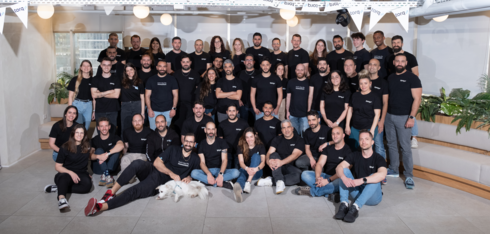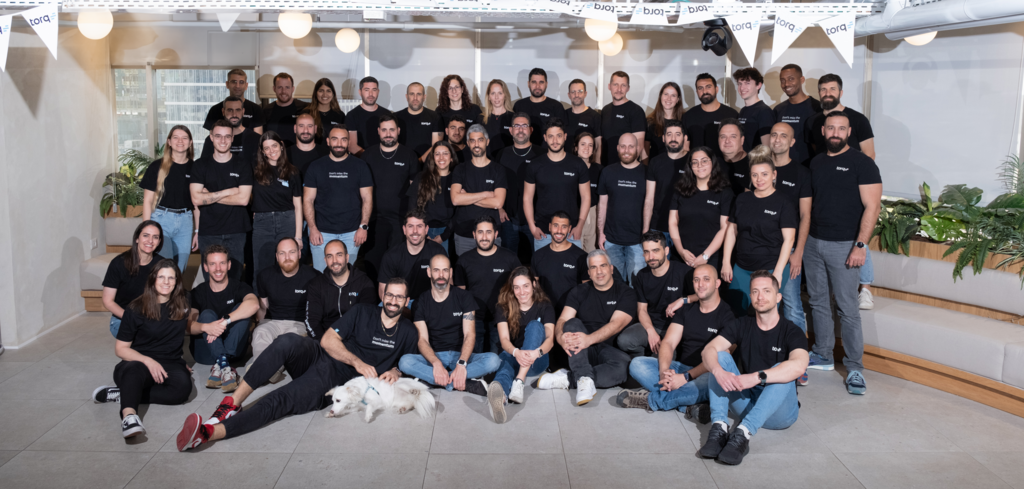
Cyber startup Torq’s $70M funding pushes 2024 total to $112M amid triple-digit growth
The Israeli startup has seen revenue growth of over 3x for the second consecutive year and expects to reach $100 million in annual recurring revenue (ARR) by the end of 2026.
Cyber company Torq has raised $70 million in a Series C round led by Evolution Equity Partners, with participation from Bessemer Venture Partners, Notable Capital, Greenfield Partners, and Strait Capital. Prominent angel investors, including Gili Ra'anan, Assaf Rappaport, Nadir Izrael, Yevgeny Dibrov, and Tomer Schwartz, also joined the round. This latest funding brings Torq's total capital raised in 2024 to $112 million, following a $42 million expansion of its Series B in January. To date, the company has raised $192 million, with earlier investments from Evolution Equity Partners, Insight Partners, GGV Capital, Bessemer Venture Partners, and Greenfield Partners.
Torq, founded in 2020 by Ofer Smadari (CEO), Leonid Belkind (CTO), and Eldad Livni (CINO), specializes in AI-driven cybersecurity. The founders previously established Luminate Security in 2017, which developed a secure access platform for hybrid environments and was acquired by Symantec for approximately $250 million in 2019. Torq currently employs around 180 people in Israel and the U.S. and plans to hire an additional 130 employees, primarily in product development in Israel and sales across the U.S., EMEA, and APAC regions.
Torq has seen revenue growth of over 3x for the second consecutive year and expects to reach $100 million in annual recurring revenue (ARR) by the end of 2026. The company will use the new funding for R&D, expanding its sales force, and advancing its GenAI developments.
Torq's AI-based cybersecurity platform connects an organization's security infrastructure to streamline the detection and response to cyber incidents. It automates complex processes on a large scale, reducing the workload on human analysts. Torq's system addresses the inefficiencies in large organizations' cybersecurity operations, where teams often handle thousands of daily alerts, many of which are false positives or go unchecked.
In 2024, Torq signed agreements with multinational clients, including Telefonica, ZARA, and ZoomInfo. Other notable customers include Abnormal Security, Armis, Blackstone, Carvana, Check Point Security, Chipotle, Deepwatch, Lemonade, Lennar, Nubank, Rivian, SentinelOne, Wiz, and several Fortune 100 companies.
Ofer Smadari, CEO and co-founder of Torq, is a veteran entrepreneur in the local industry. He believes the cybersecurity industry today is thriving, with significant room for new companies to grow. "On the one hand, the use of artificial intelligence by attackers has increased cyberattacks on commercial organizations and government agencies. On the other hand, this opens up opportunities to leverage AI-based technologies to combat the growing cybercrime—essentially fighting AI with AI. Especially in an unstable global political environment, where nations use cyberattacks as a tool against other countries, there is a need for broad, comprehensive protection. I believe that, along with Israel’s remarkable tech ecosystem and the exceptional talent we have here, we can build a new generation of companies that will replace legacy products that aren’t designed for AI. This presents a unique opportunity for innovation and growth in the cyber market."
Smadari, who previously sold Luminate to Symantec, does not rule out the possibility of selling Torq in the future but says the company is committed to staying independent for now. "We are not actively looking for a buyer, but we won’t necessarily rule out any opportunities if they arise."
Smadari’s journey in the cybersecurity industry began as a student working at Bank Leumi, where he operated the information security system. “I met a friend who recommended the field of information security. He was establishing a response system for the bank. This was during the early days of the internet, and the bank was working on making websites accessible to customers instead of requiring them to visit branches. I was the eighth employee in the team, and I stayed there for eight years. During that time, many talented people worked with me, including Dan Amiga and Eyal Gruner. In 2009, I managed a large information security consulting department, overseeing a broad range of projects in Israel and abroad. I built a very profitable organization over three years and continued developing it for another two years. One company that stood out to me during this time was Adallom, which had an innovative product that caught my attention. Yevgeny Dibrov, a co-founder of Armis, was promoting the product in Israel, and Assaf Rappaport suggested expanding into Europe. I was intrigued, and after a lot of thought, I resigned from my job without a formal employment contract and joined Adallom. Within a few weeks, we started building the company’s sales activities in Asia and Europe. Later, Adallom was acquired by Microsoft."
How did you get to Luminate and your first exit?
"I had an idea for a new product called Zero Trust, which became the foundation for Luminate. At the end of 2016, no one knew what Zero Trust was, but we believed it would revolutionize the industry—and it did. We raised $3 million initially, and after 10 months, we secured another $10 million from USVP. We gained our first customers quickly, and in October 2018, Symantec came to us, introduced by Dan Amiga, and the connection happened fast. Within two weeks, we had an initial purchase agreement. The initial offer wasn’t high enough, but they tripled it to $250 million after we had raised only $13 million and spent just $7 million. We were integrated into Symantec, which was later acquired by Broadcom, doubling our exit value due to the shares we held. After Broadcom’s acquisition, they allowed all entrepreneurs to leave the company after nine months, so we left at the end of 2019—just before the COVID-19 pandemic started."
And you thought it was the right time to start another company?
"During the pandemic, we decided to start something new, along with two other former Broadcom employees. We raised $8.5 million from Bessemer Venture Partners and individual investors such as Assaf Rappaport, Yevgeny Dibrov, and the Demisto team. In August, we received a $20 million investment from GGV Capital. However, I felt that the product we were offering to the market wasn’t strong enough. With 25 employees at the time, I told the board we needed to pivot, and by December, we had introduced a new product. We began securing large customers and quickly gained traction. We raised $50 million from Insight Partners, and thanks to that, our sales grew significantly. In the first year, we reached millions of dollars in sales with a very lean team. By 2023, we built out a full sales team with experienced professionals and ended the year with a 300% increase in sales—achieving tens of millions of dollars in revenue."














